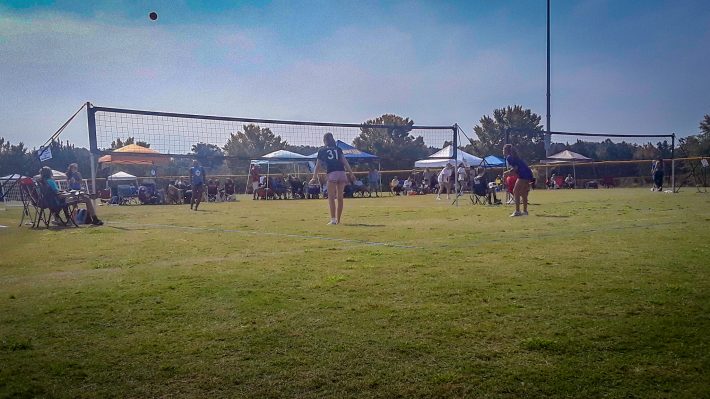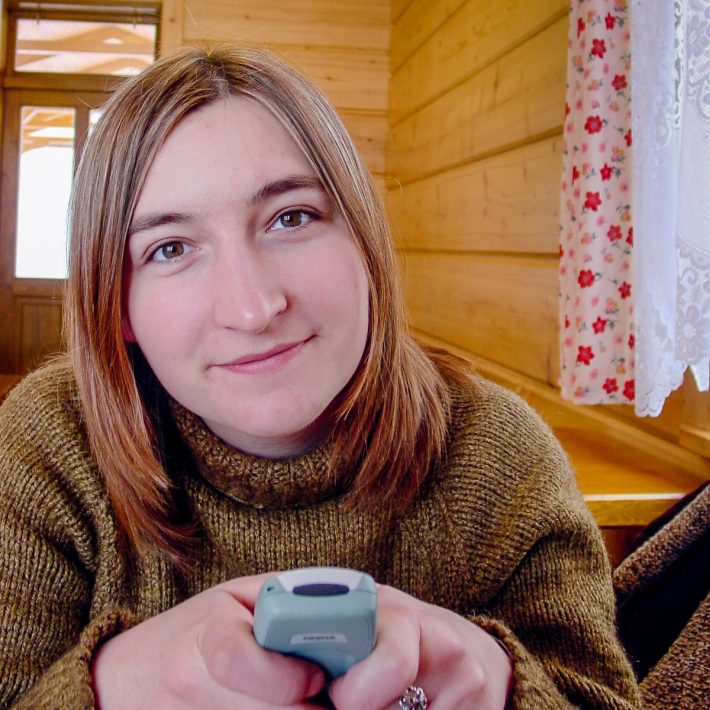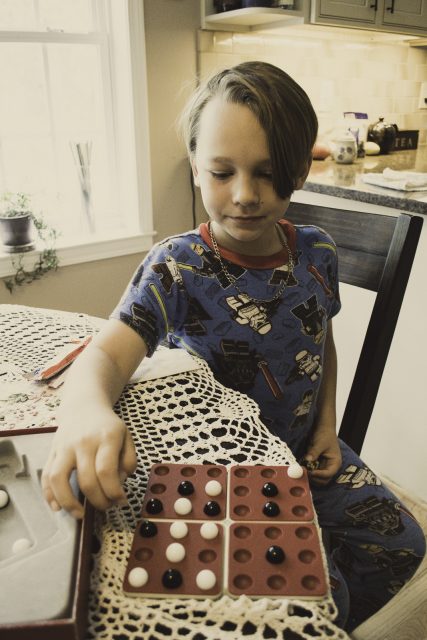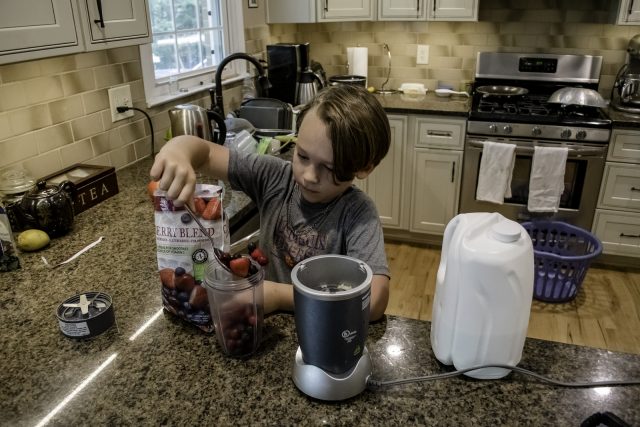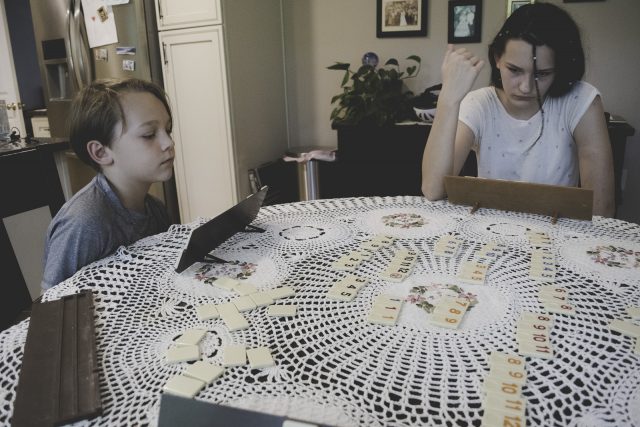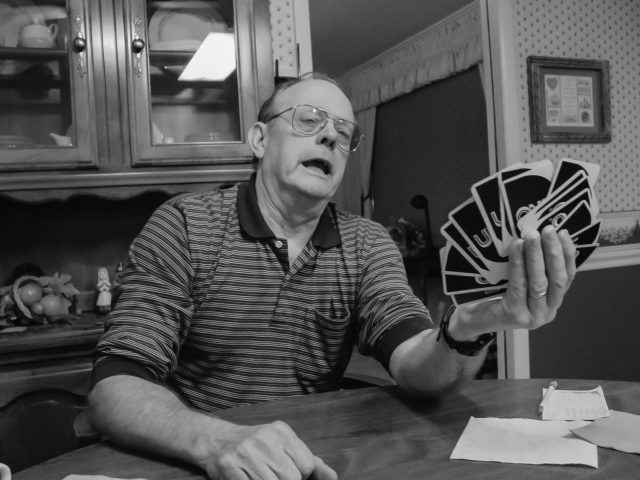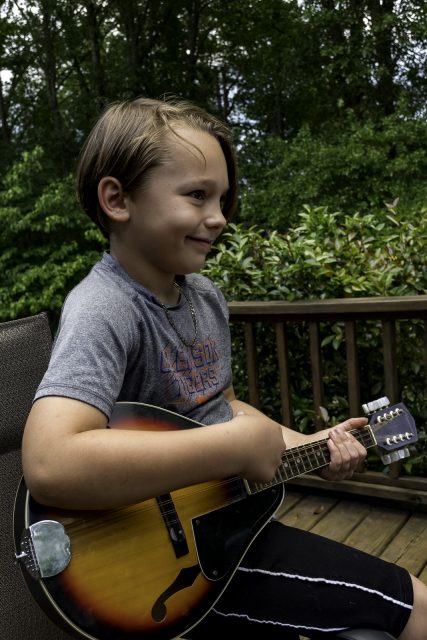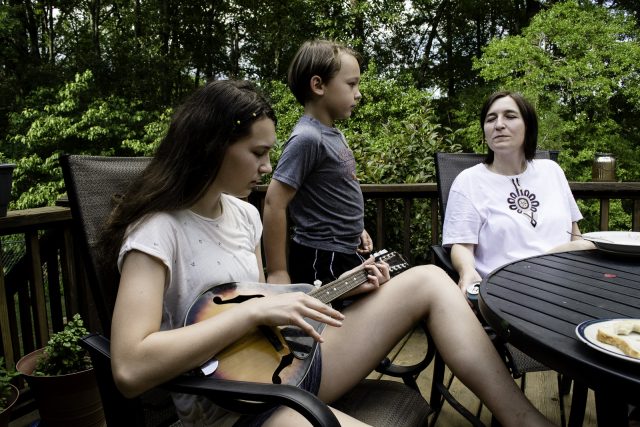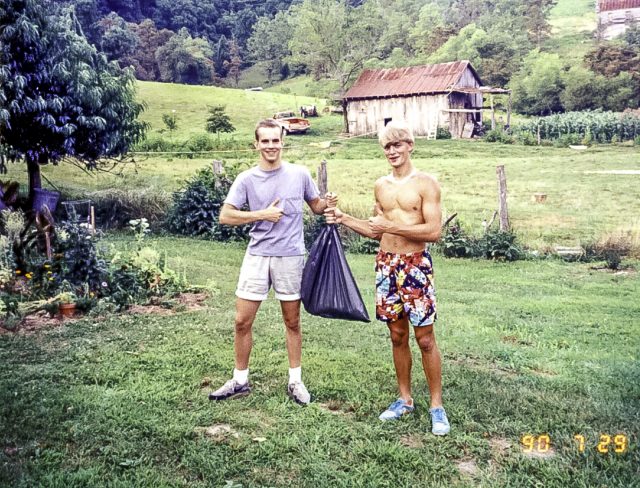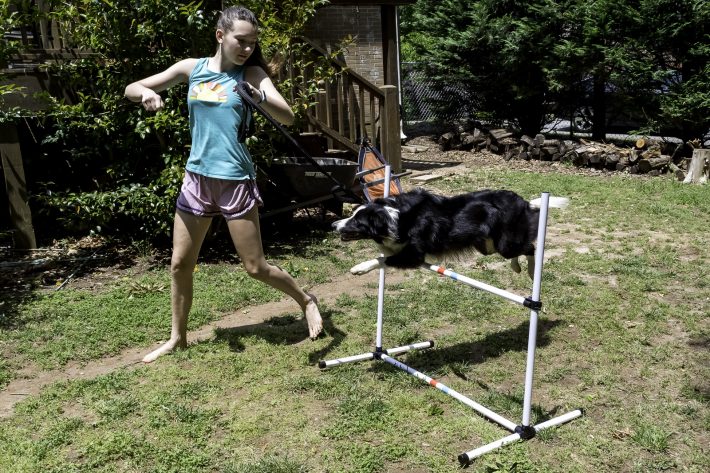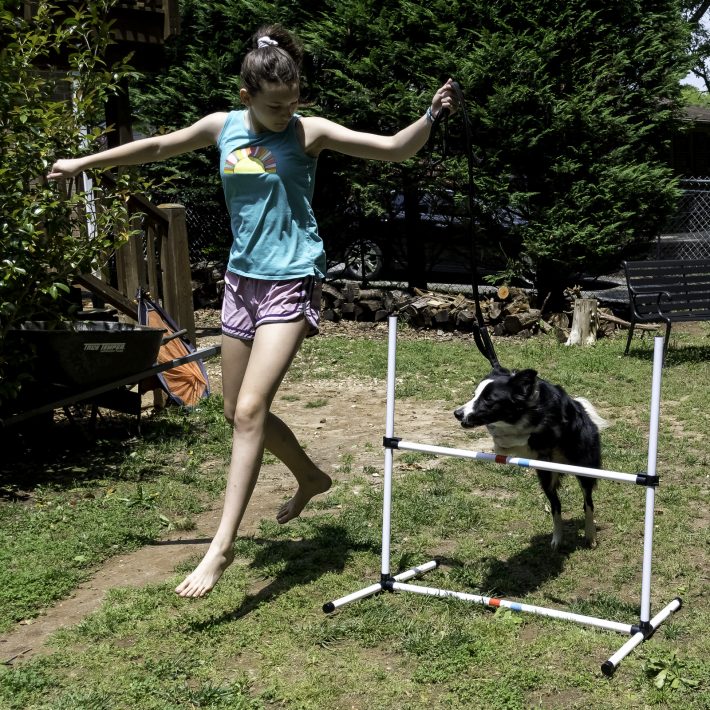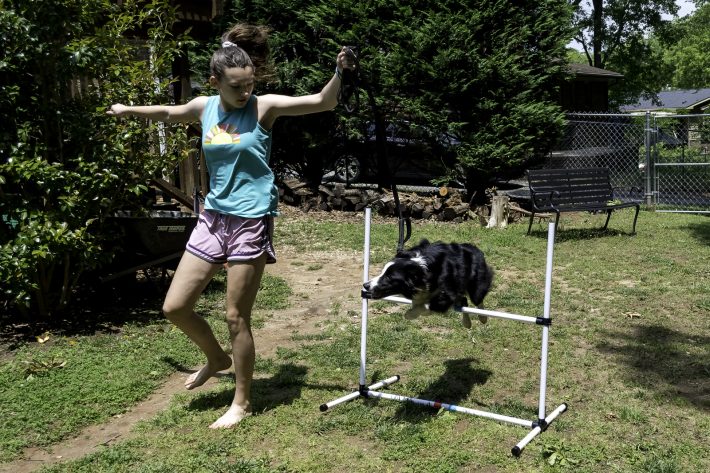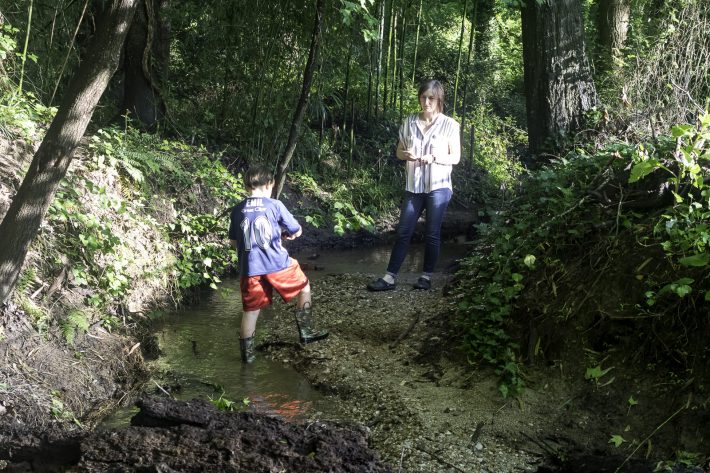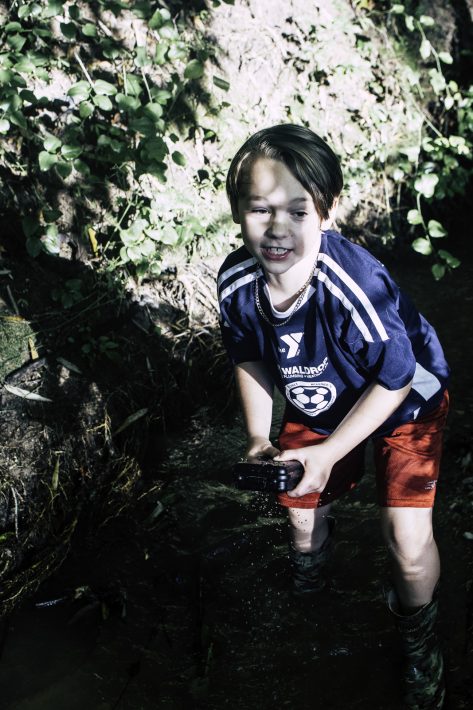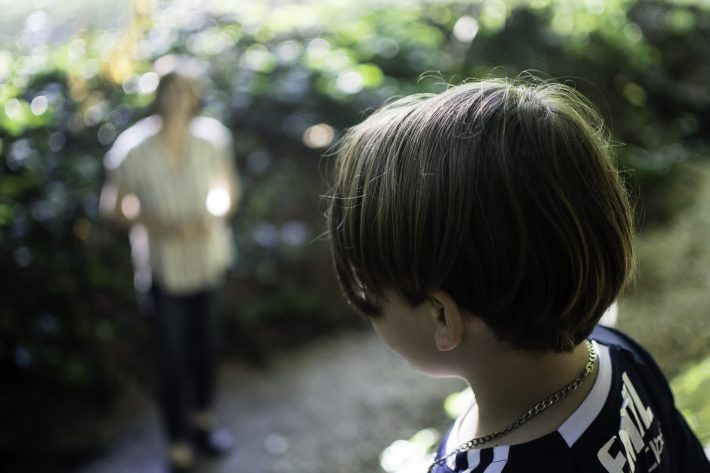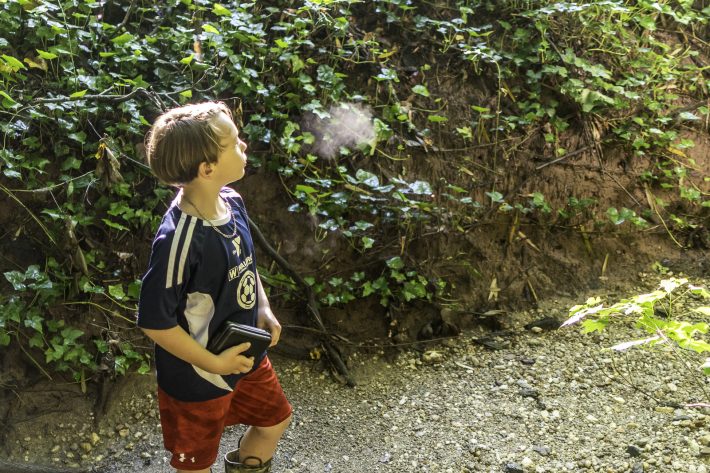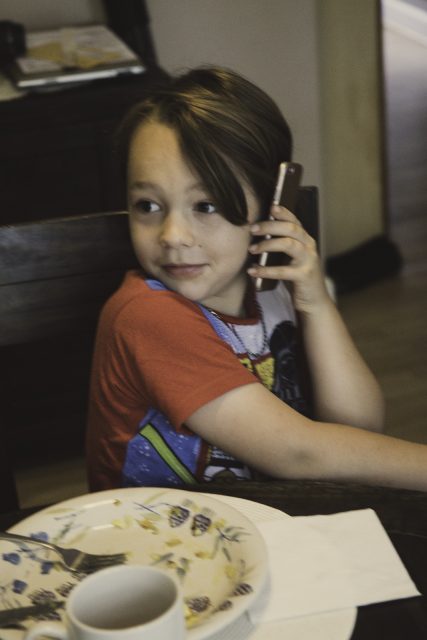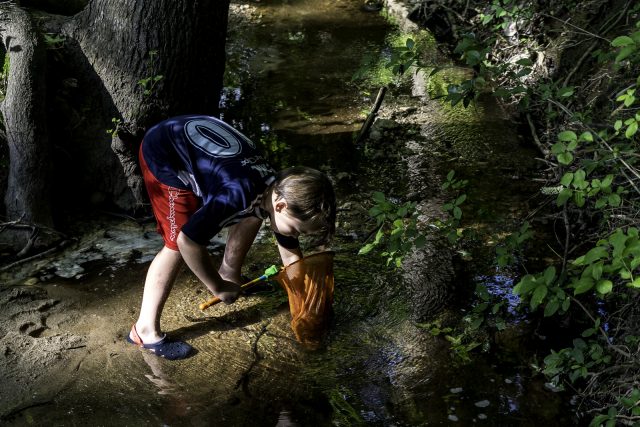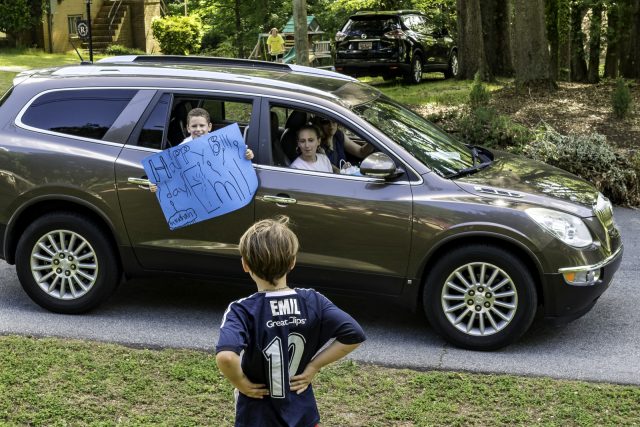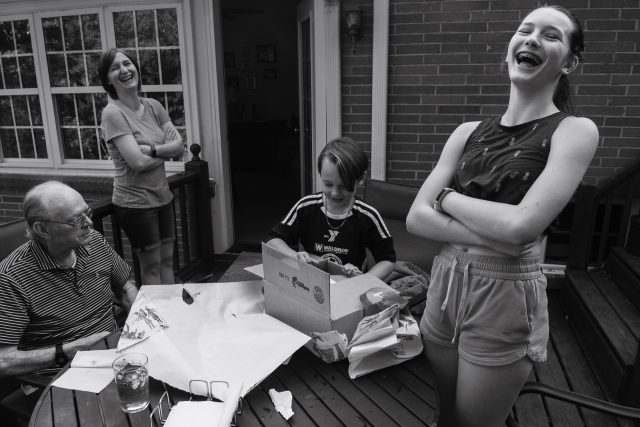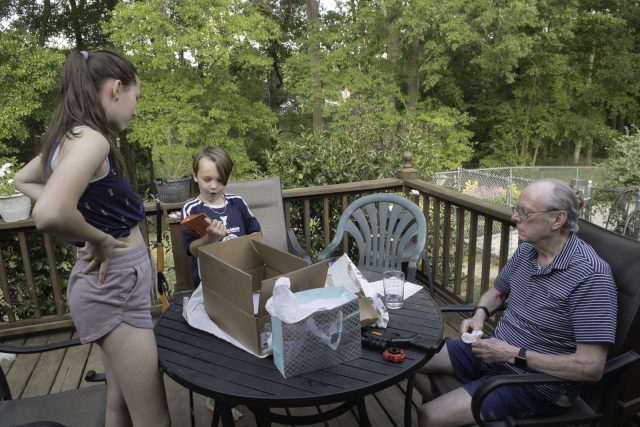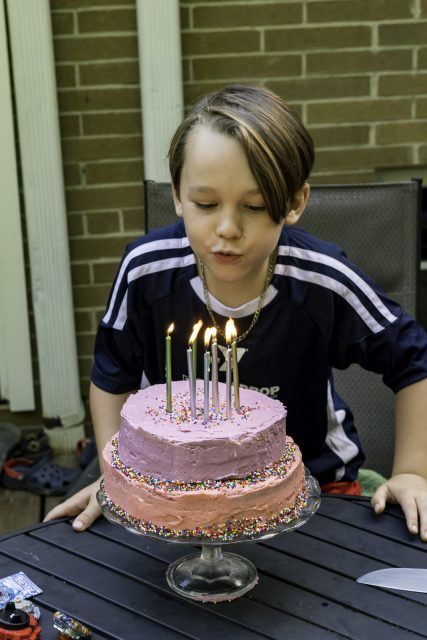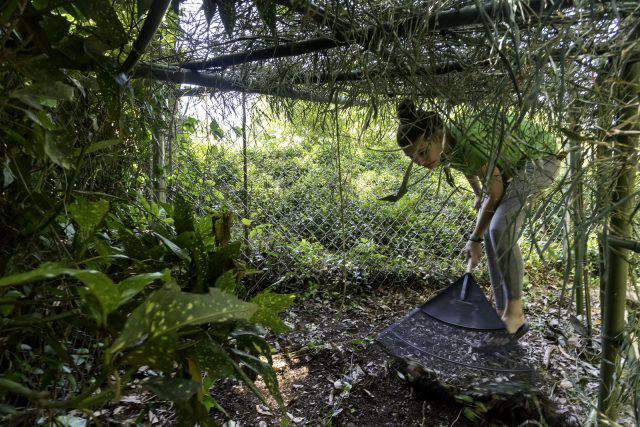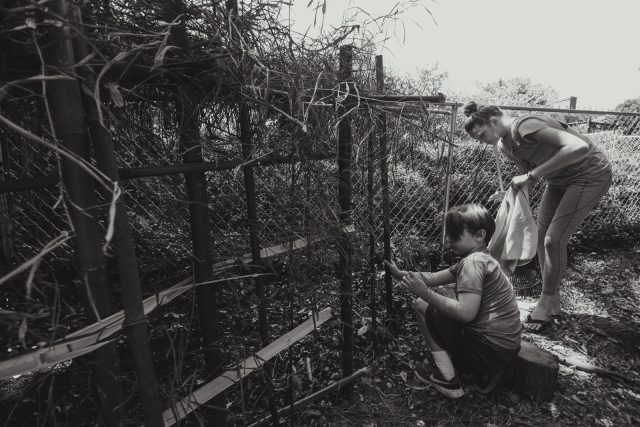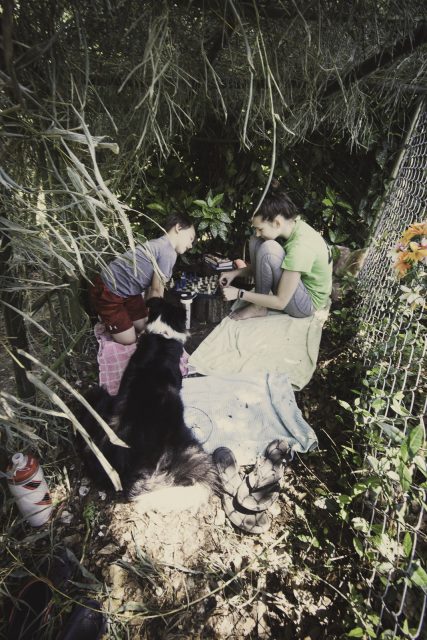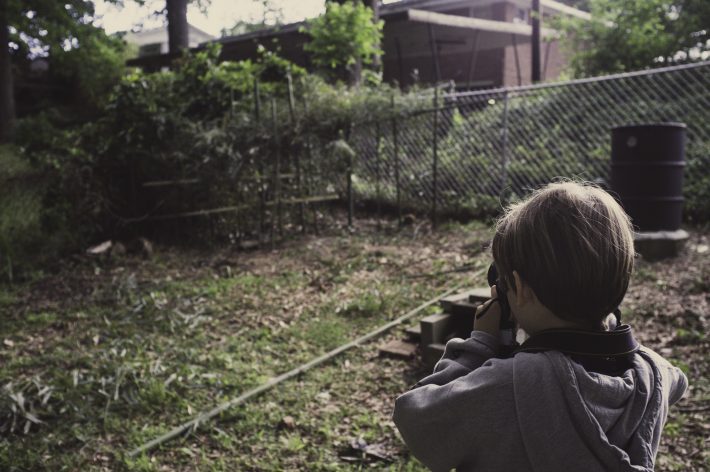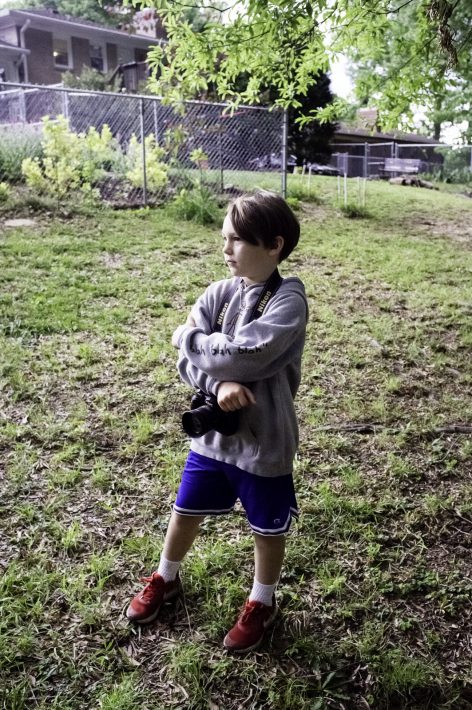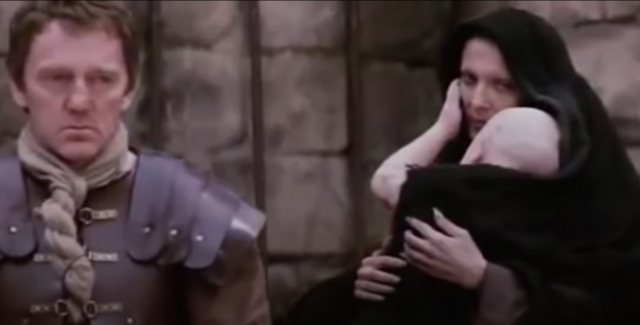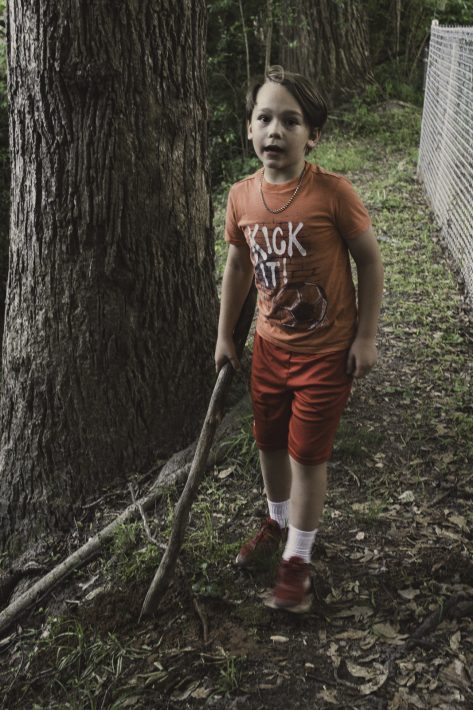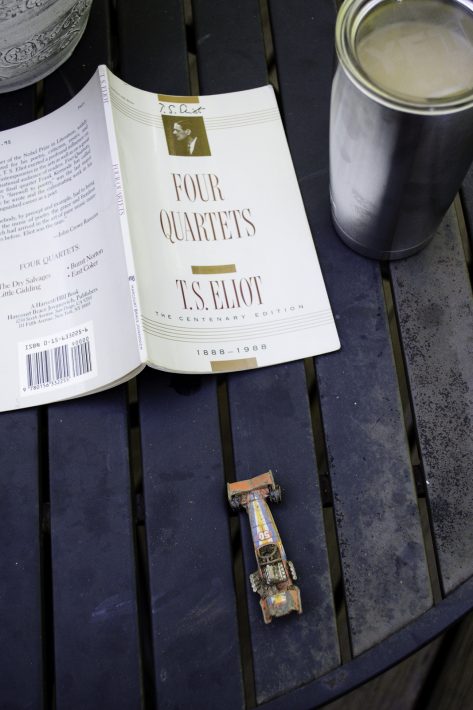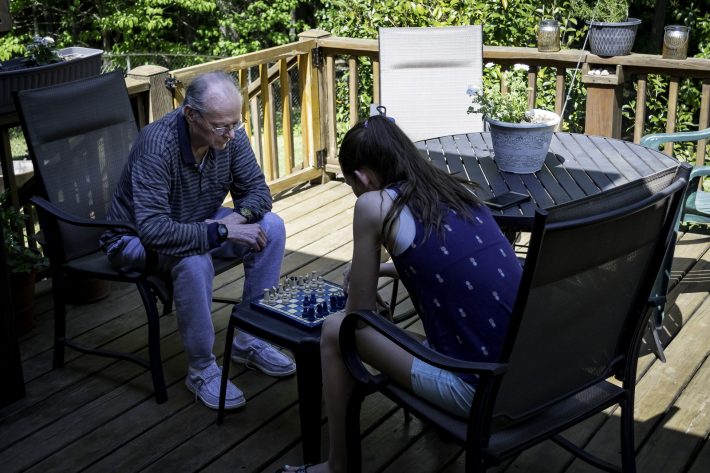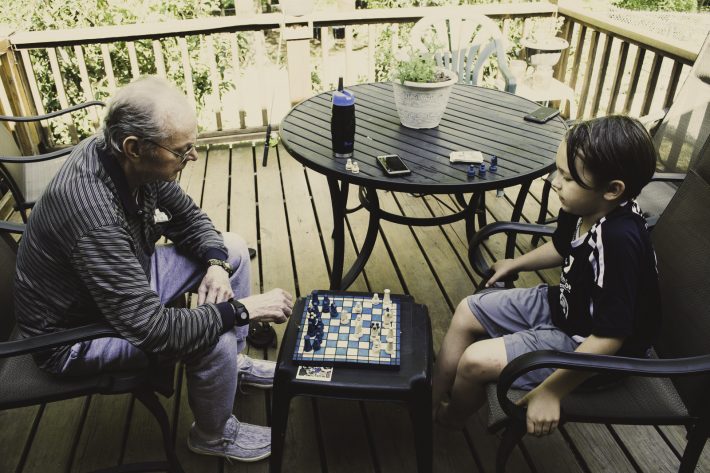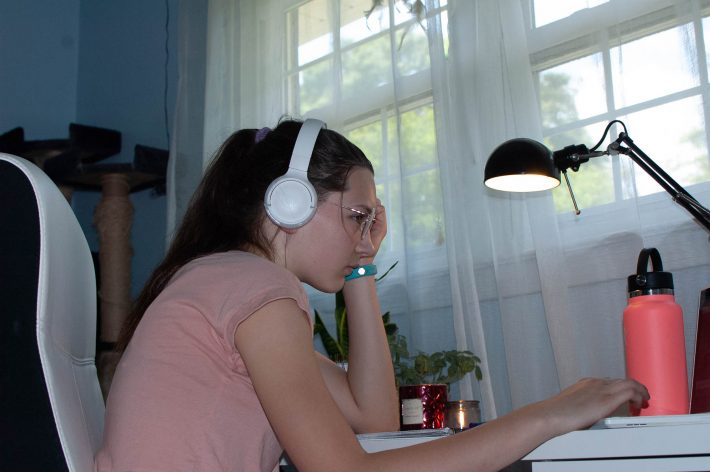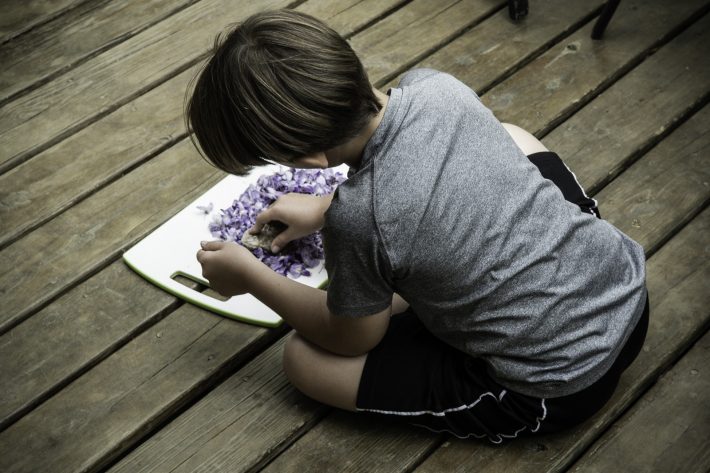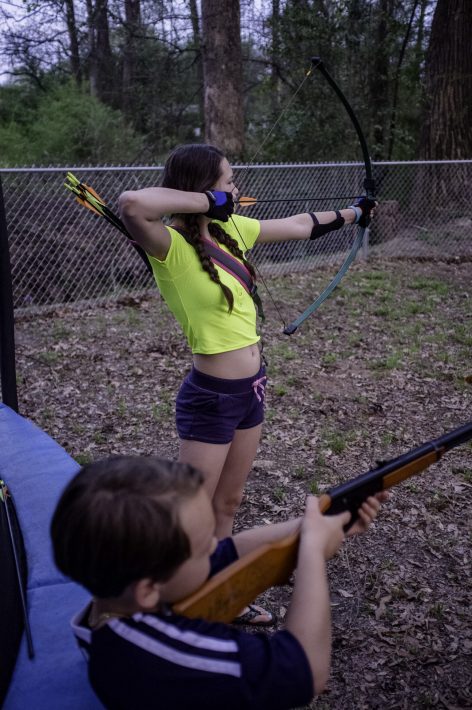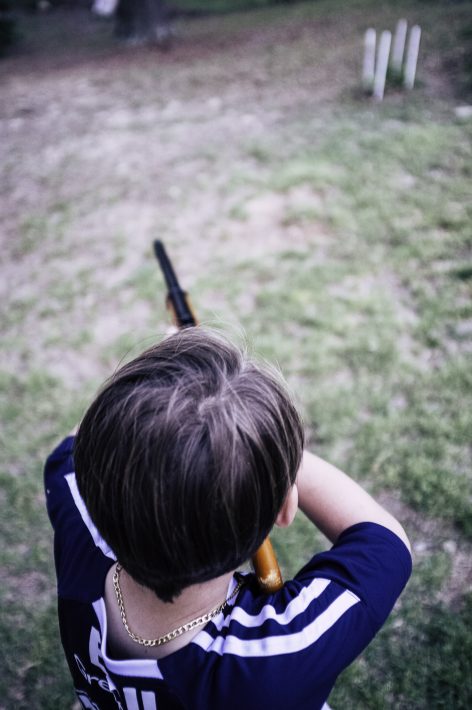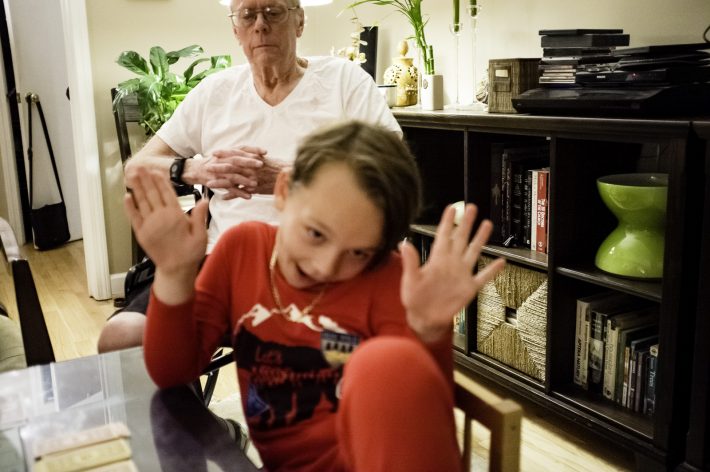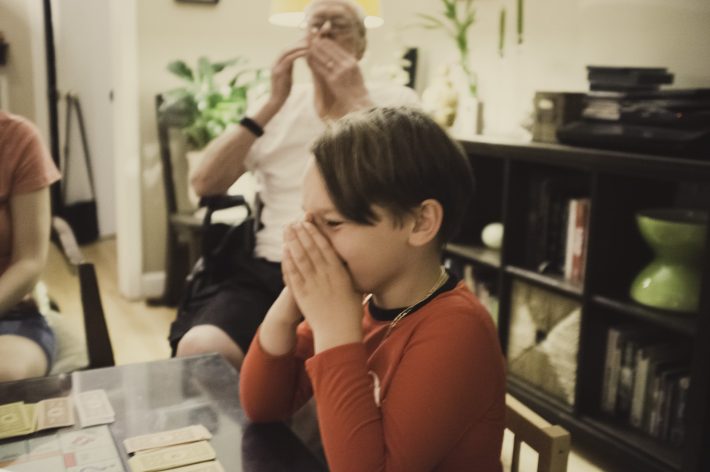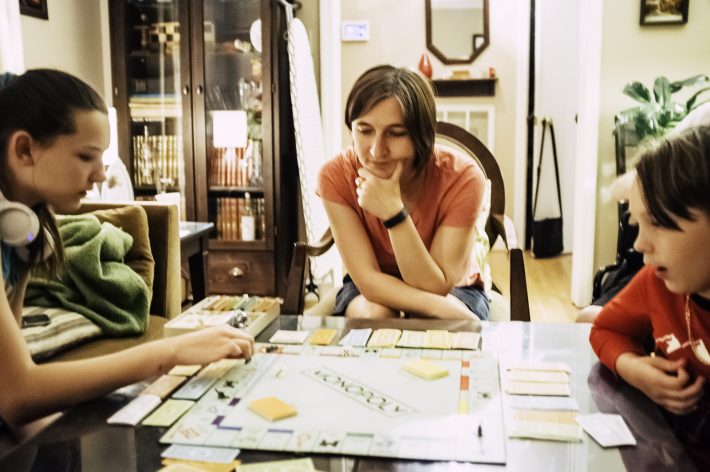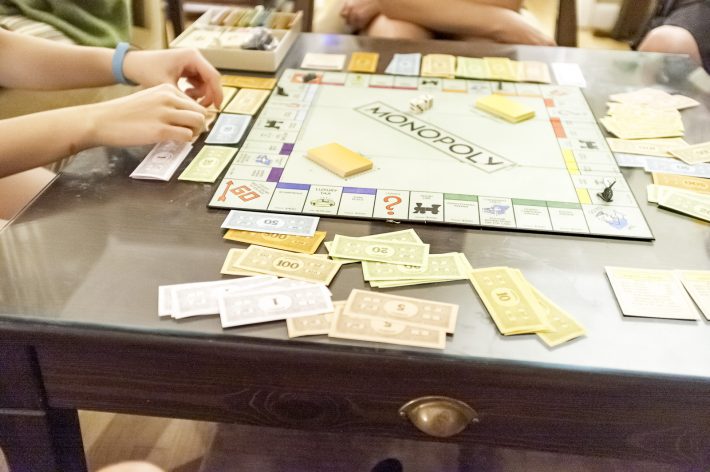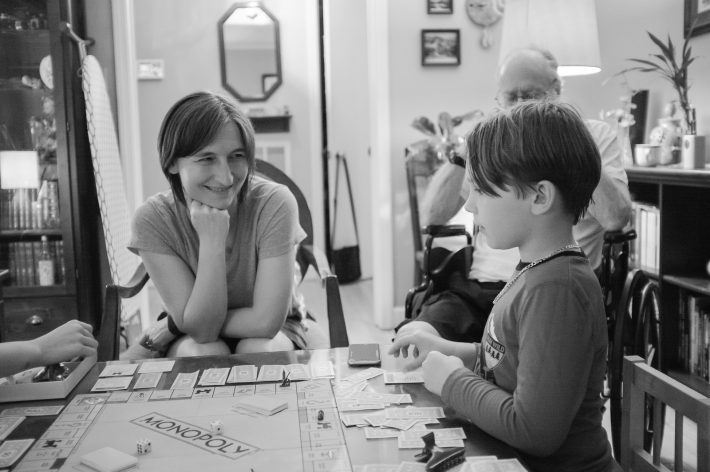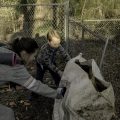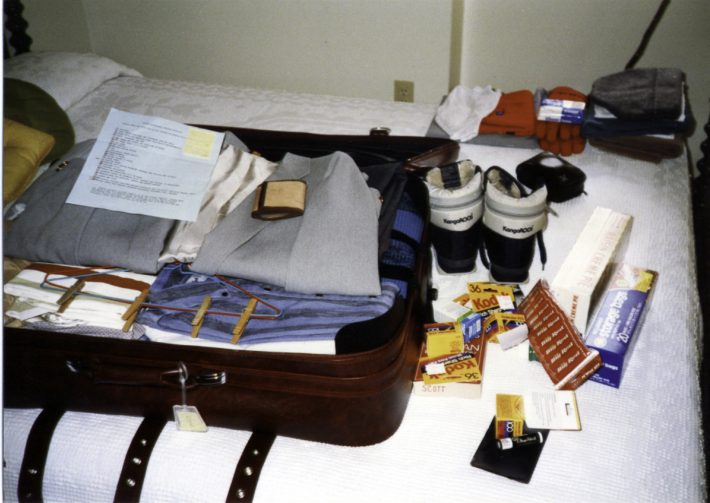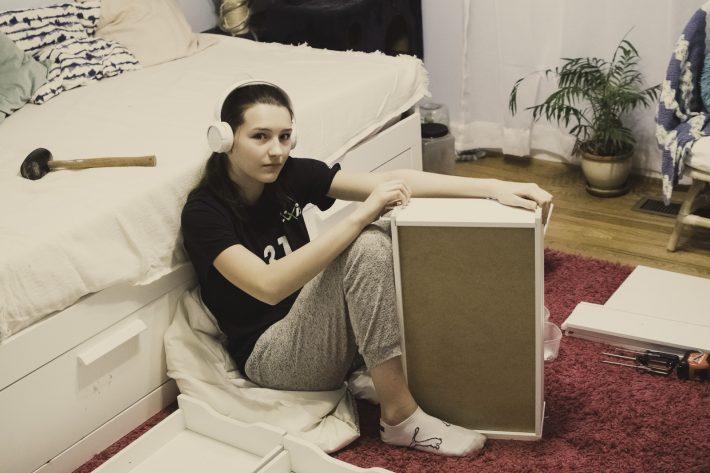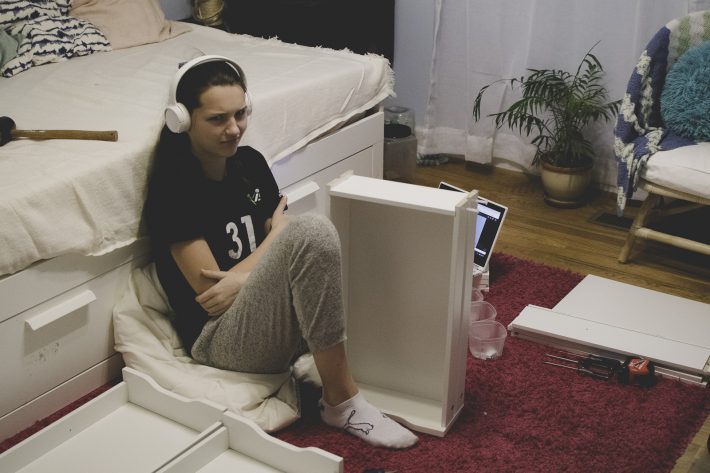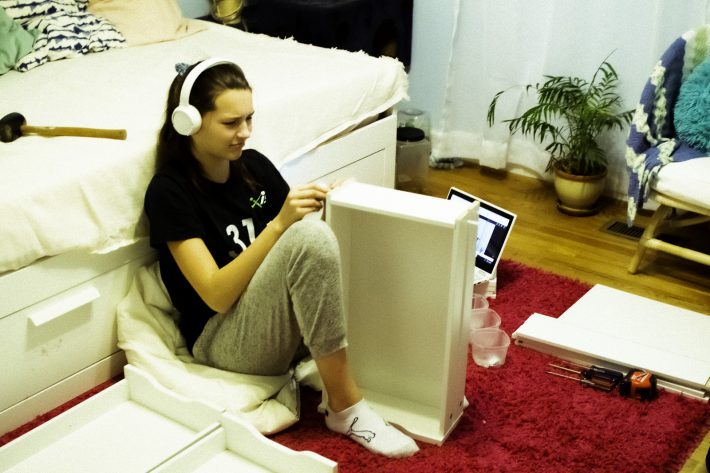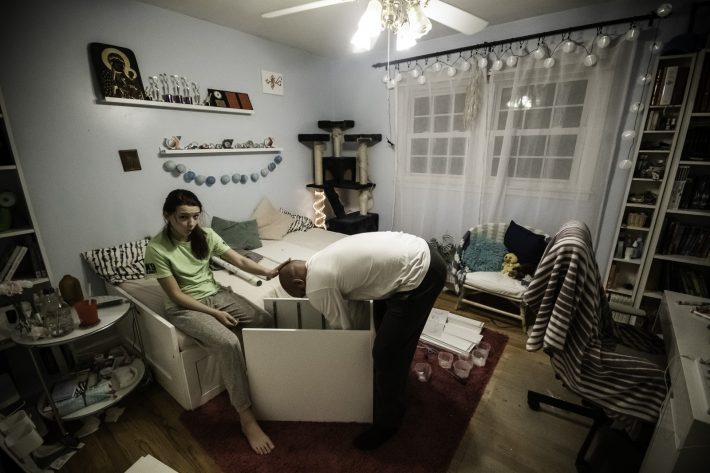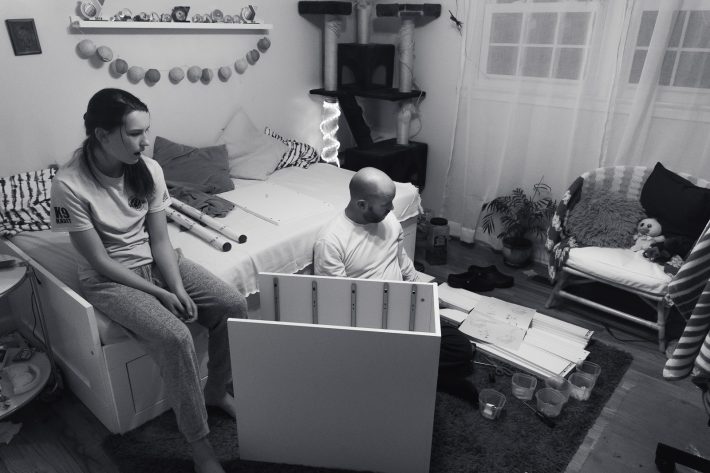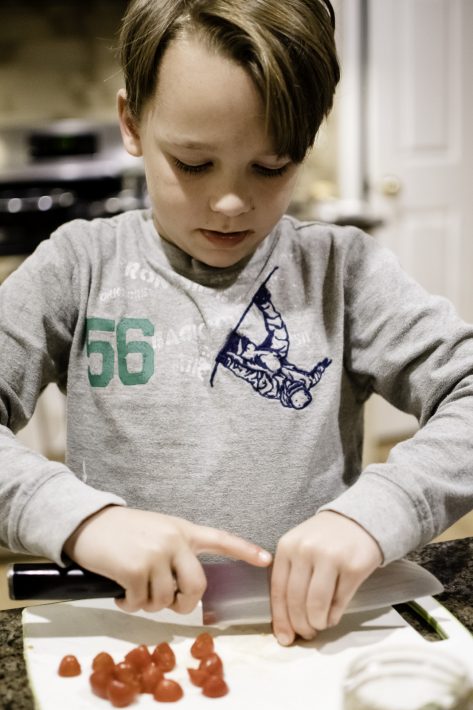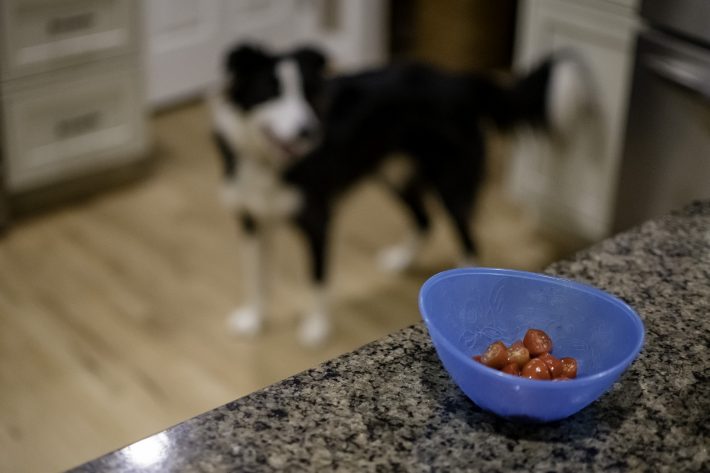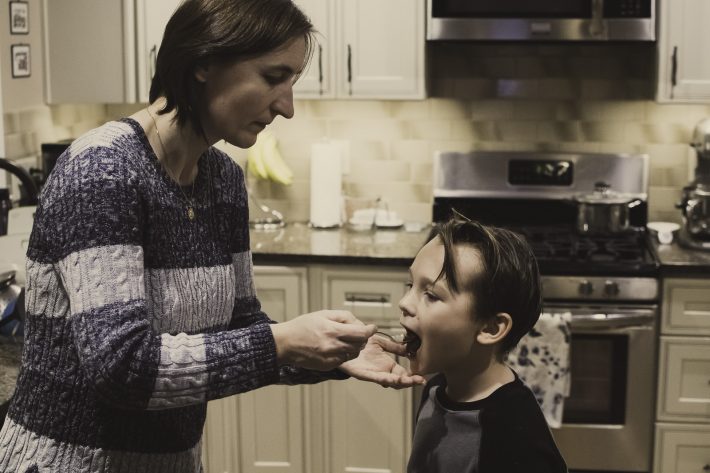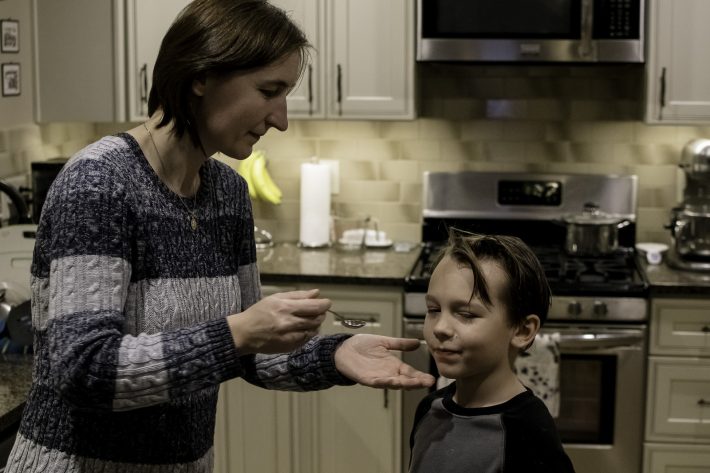“Hey, there’s a grass volleyball tournament in town this weekend. Want to go play?” L asked.
“Sure,” her best friend N replied.
That’s how it started. So two good friends who both have a couple years’ experience playing volleyball but no experience playing two-girl volleyball — no experience at all, not just no experience playing together in pairs volleyball — set out this morning to see how they’d do.
It was a learning experience, to say the least.
Not only did they not win a single set, their total points scored for six sets (54) didn’t even average out to 10 points per game. To say they got their butts kicked is really quite an understatement.
It’s not something she’s used to in volleyball. Last year, her school’s team won every single match and only dropped three or four sets the entire season. This year, with only two matches remaining, they haven’t lost a single set. They are used to delivering the smackdown, not receiving it.
But it wasn’t always like that either for the Girl. When she first started playing volleyball, she tried out for the school team in sixth grade and didn’t make the cut. We put her in YMCA volleyball and her team didn’t do well at all.
As a parent watching my daughter play volleyball, I always have some mixed emotions. During the last season, her team struggled mightily: they didn’t win a single match, if memory serves, and they only won a handful of sets. It was rough. Lots of frustration in the car after games.
“We won’t ever win.”
Several matches, they were swept, three sets to nothing. There was nothing immediately redeemable about that. I said what any parent would say: “You’re getting stronger.” “This is building character.” “This shows how tough you are, that you keep at it despite the challenges.” (Source)
Still, even then they weren’t getting beaten brutally.
Today, they were. Completely outclassed. Completely and mercilessly beaten by girls who had much more experience than they do.
Point after point, set after set, game after game, they kept playing. They lost by scores like 21-7 and kept playing. They made silly mistakes and went for several points without actually earning a point but gaining points only from unforced errors and still, they kept playing.
I’m not sure when I was prouder of L.
As the morning progressed, they improved. They figured out some of the little strategic differences that pairs volleyball demands. They worked together more. Their game became a little more analytic. They grew.
What’s more, when we asked the girls if they’d enjoyed it, they insisted they’d had fun. And I believe them. So a successful lesson on many levels.
